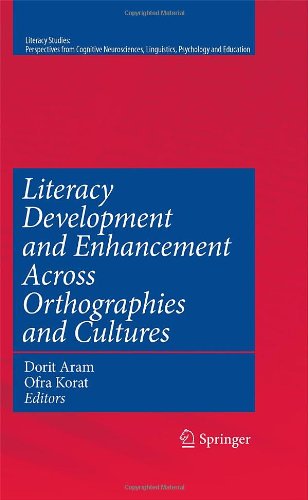

Most ebook files are in PDF format, so you can easily read them using various software such as Foxit Reader or directly on the Google Chrome browser.
Some ebook files are released by publishers in other formats such as .awz, .mobi, .epub, .fb2, etc. You may need to install specific software to read these formats on mobile/PC, such as Calibre.
Please read the tutorial at this link: https://ebookbell.com/faq
We offer FREE conversion to the popular formats you request; however, this may take some time. Therefore, right after payment, please email us, and we will try to provide the service as quickly as possible.
For some exceptional file formats or broken links (if any), please refrain from opening any disputes. Instead, email us first, and we will try to assist within a maximum of 6 hours.
EbookBell Team

5.0
20 reviewsOne key measure of a country’s status in the world is the literacy of its people; at the same time, global migration has led to increased interest in bilingualism and foreign language learning as topics of research. Literacy Development and Enhancement Across Orthographies and Cultures reviews international studies of the role of literacy in child development, particularly how children learn their first written language and acquire a second written and spoken one. Comparisons and contrasts are analyzed across eight countries and 11 languages, including English, Spanish, Mandarin, Hebrew, Dutch, and Catalan.
Using qualitative and quantitative, established and experimental methods, contributors trace toddlers’ development of print awareness, clear up common myths regarding parental involvement and non-involvement in their children’s literacy, and suggest how the spelling of words can aid in the gaining of vocabulary. For added relevance to educators, the book includes chapters on early intervention for reading problems and the impact of pedagogical science on teaching literacy.
Highlights of the coverage:
Literacy Development and Enhancement Across Orthographies and Cultures adds significant depth and interest to the knowledge base and should inspire contributions from additional languages and orthographies. It belongs in the libraries of researchers and educators involved in cognitive psychology, language education, early childhood education and linguistics.